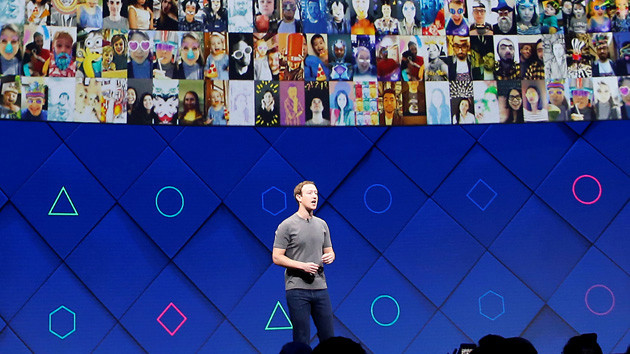Mark Zuckerberg Does Not Like Personal Privacy
Stephen Lam/Reuters via ZUMA
Looking for news you can trust?Subscribe to our free newsletters.
As Mark Zuckerberg wriggles his way past a Senate committee that’s pretty clearly overmatched in the IQ department, it’s important to remember why Facebook has such big privacy problems. It’s because Mark Zuckerberg wants it that way. Here he is in 2008 talking about his campaign to get people to stop caring about personal privacy:
The challenge we have is to bring people along that whole path. First, get people onto Facebook and make it so that people can be comfortable sharing information online. Four years ago, when Facebook was getting started, most people didn’t want to put up any information about themselves on the internet. We got people through this really big hurdle of wanting to put up their full name or real picture or mobile phone number.
And again in 2010, telling an interviewer that as Facebook’s campaign to change privacy norms progresses, they try to stay ahead of the curve by reducing privacy protections even further:
People have really gotten comfortable not only sharing more information and different kinds, but more openly and with more people. That social norm is just something that has evolved over time. We view it as our role in the system to constantly be innovating and be updating what our system is to reflect what the current social norms are.
Zuckerberg’s overriding vision from Day One has been unvarying: to get people to share everything about themselves on Facebook. If they do it voluntarily, that’s great. If they don’t do it voluntarily, then Facebook tricks them—and the standard Facebook trick is both simple and surprisingly effective: set privacy defaults as loosely as possible and wait to see if anyone notices. If they do, tighten them the minimal amount needed to quiet the outrage and then do an interview where Zuckerberg talks earnestly about how good their privacy controls are. Rinse and repeat. Facebook has used this approach over and over and over, and it seems to work great no matter how many times they do it.
Of course, one of the big ironies of today’s Senate hearing is that if Congress did decide to get serious about privacy—yes, yes, I know. Stop laughing. Just hear me out. If Congress did decide to get serious about privacy, it might do nothing but benefit Facebook at this point. After all, loose privacy controls aren’t only about targeting ads. They’re also about making it possible for other people to find you. This is what makes a social network grow in the first place. But Facebook already has 2 billion users. That’s nearly every internet user in the world outside China, so there’s a hard limit on their future growth rate.
In other words, stricter privacy controls wouldn’t hurt Facebook all that much at this point. They’d only hurt Facebook’s smaller competitors, who would find it harder to grow as quickly as Facebook did.
It’s still worth doing, though. A good start would be to work with Europe on adopting a common set of privacy standards that are based far more on those in the EU than those in the US. I can dream, can’t I?





